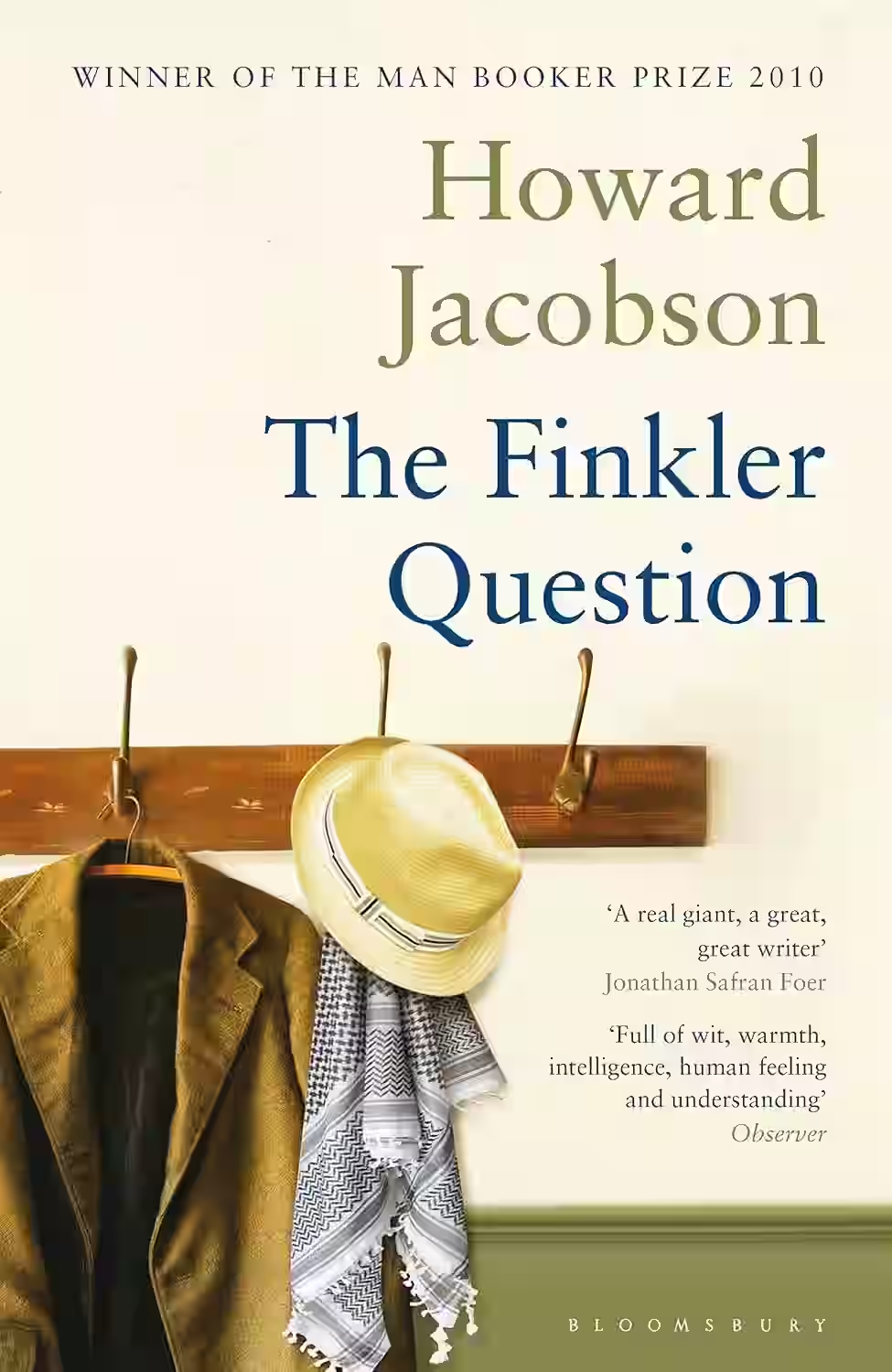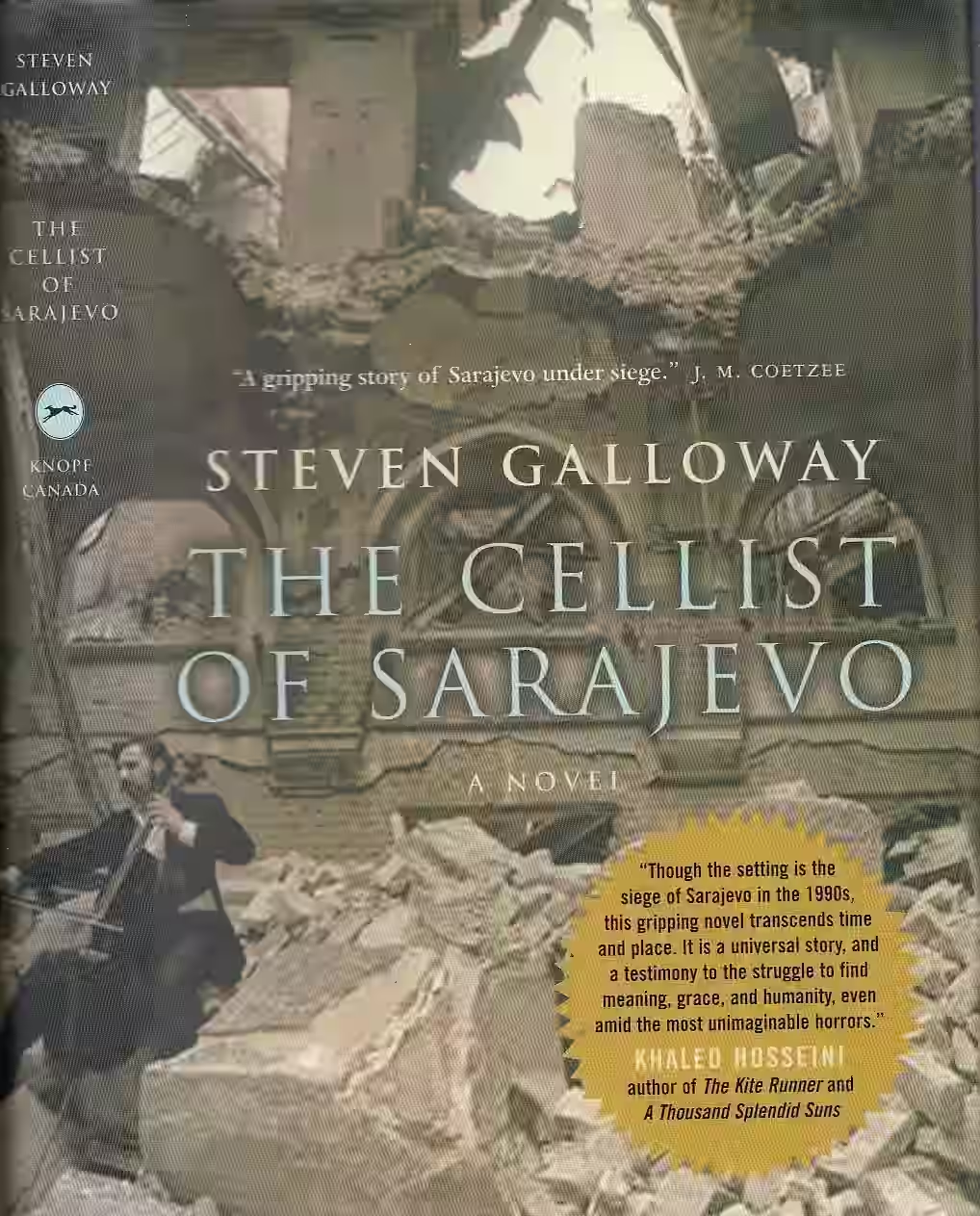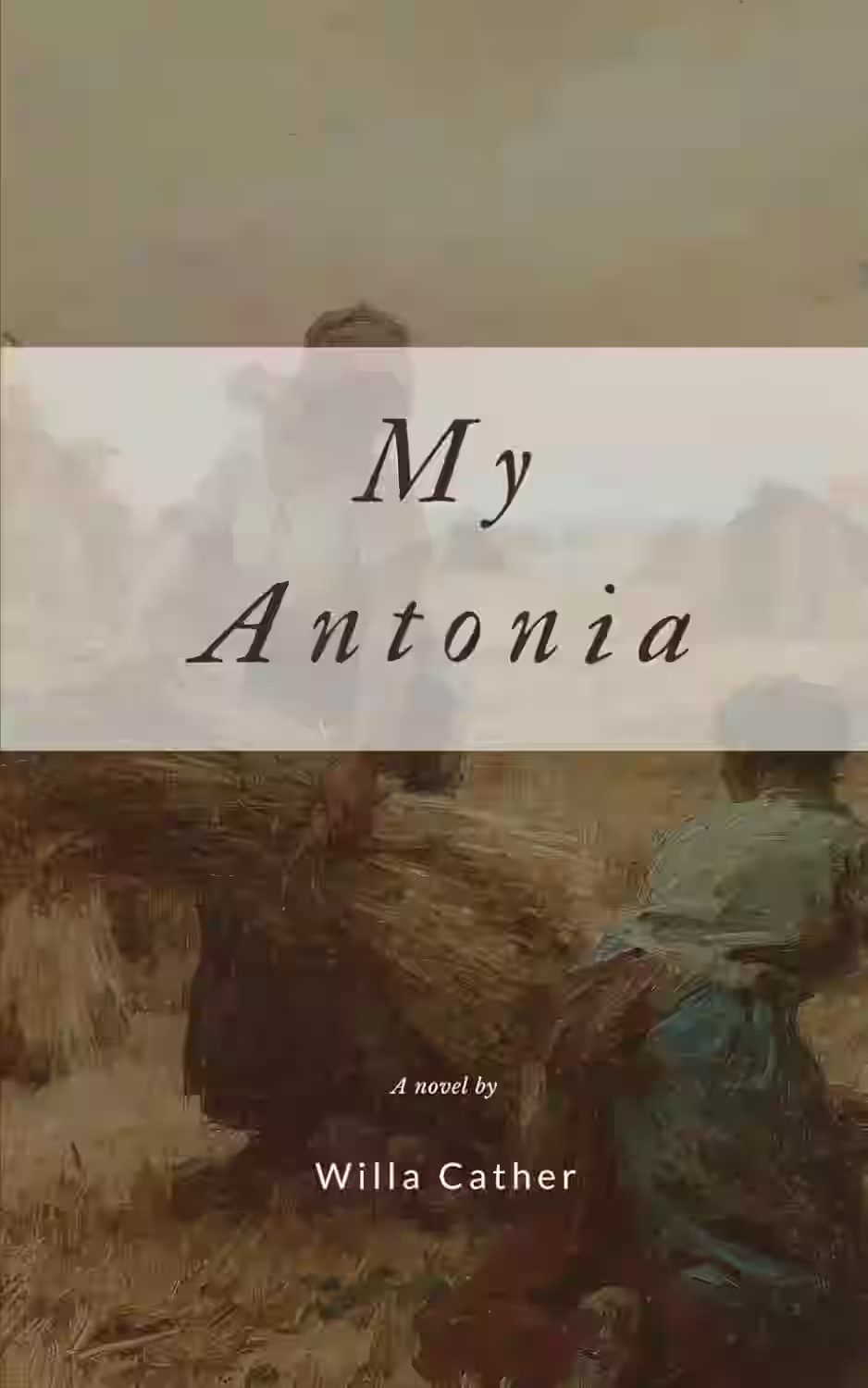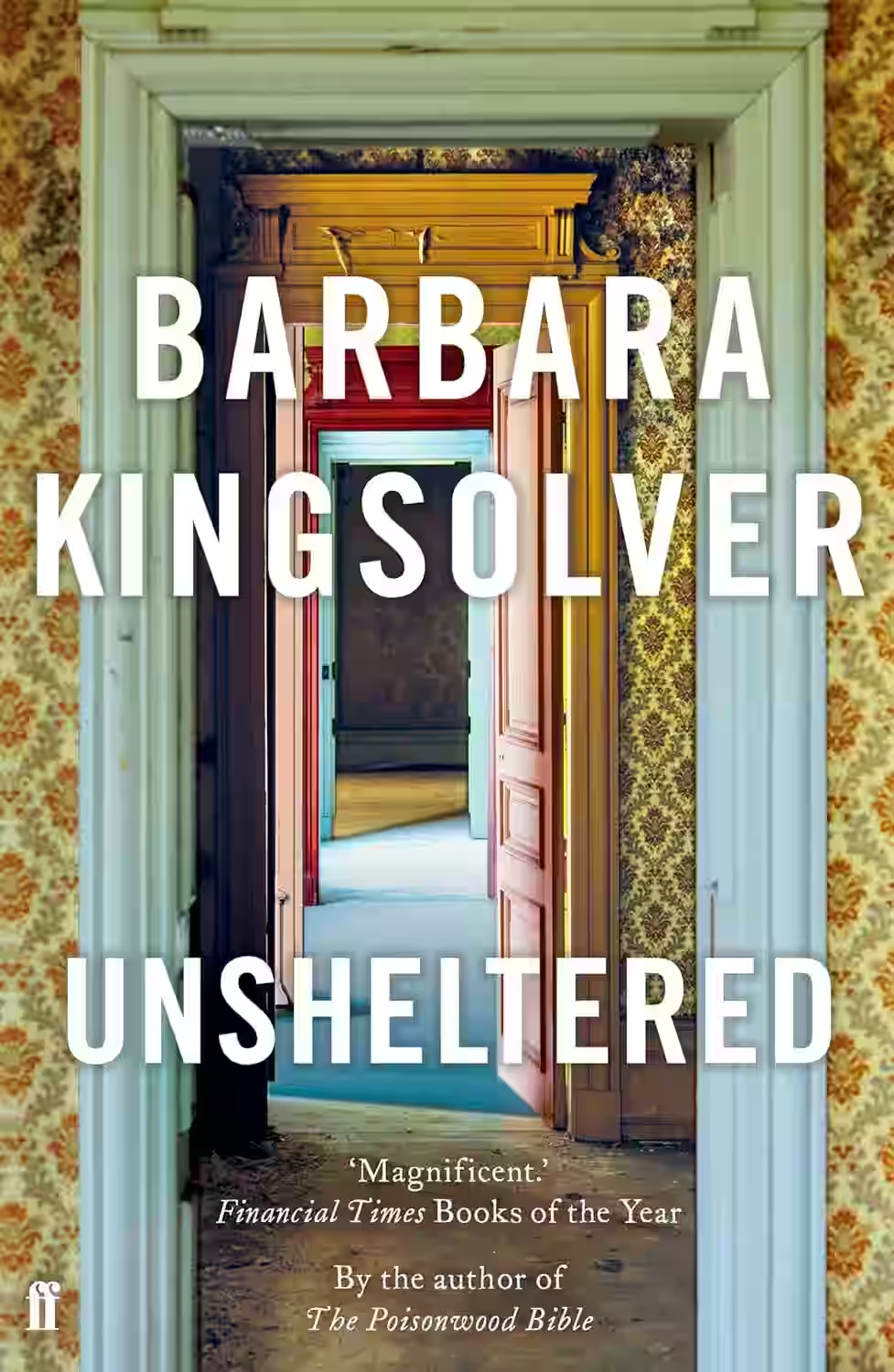
Julian Treslove, a non-Jewish man, becomes obsessed with Jewish identity after a mugging incident. Through his relationships with two Jewish friends, Sam Finkler and Libor Sevcik, Julian explores themes of friendship, loss, and the complexities of Jewishness in contemporary Britain. Jacobson's novel, which won the Man Booker Prize, offers a satirical yet poignant examination of identity, belonging, and the nuances of cultural affiliation.
About Howard Jacobson
A British novelist and journalist, who won the Booker Prize for his novel, The Finkler Question. His work is known for its witty, satirical prose and insightful exploration of Jewish identity, culture, and masculinity. Jacobson often employs humor to tackle serious themes, providing sharp social commentary and a distinctive voice in contemporary British literature.
Similar Books

The Cellist of Sarajevo
Set during the siege of Sarajevo in the early 1990s, 'The Cellist of Sarajevo' by Steven Galloway is a poignant exploration of life under siege. The novel interweaves the lives of three characters—Dragan, Kenan, and Arrow—each struggling to preserve their humanity amidst the chaos of war. Their stories orbit around the figure of a cellist, who plays Albinoni's Adagio in the streets to commemorate the lives lost to a mortar attack. Galloway deftly captures the resilience of the human spirit, the impact of art in times of despair, and the simple acts of courage that shine through the shadows of conflict. The book's haunting prose and meditative tone create an indelible reflection on the moral choices faced in brutal circumstances.

My Antonia
by Willa Cather
Told through the eyes of Jim Burden, My Ántonia recounts the life of Ántonia Shimerda, a spirited immigrant girl on the Nebraska frontier. Through vivid landscapes and deep characterizations, Cather celebrates pioneer life, hard work, and memory. The novel is a nostalgic tribute to the resilience of early settlers and the bond between people and place, filled with poetic prose and quiet power.

Unsheltered
Barbara Kingsolver’s 'Unsheltered' weaves a compelling narrative that delves into the volatility and uncertainty of human existence through a dual timeframe approach. Set in the same New Jersey house in the 19th century and the present day, the story follows two families grappling with socio-economic upheavals, challenging relationships, and evolving societal values. Kingsolver expertly intertwines historical and contemporary anxieties, exploring themes of resilience, adaptation, and what it means to live without a firm foundation. The novel's insightful parallel between climate change and societal change invites readers to reflect deeply on their own worlds. Kingsolver's crisp, vivid prose and meticulous character development create an immersive experience, making 'Unsheltered' both thought-provoking and emotionally resonant.

The Crying of Lot 49
Thomas Pynchon's 'The Crying of Lot 49' is a masterful exploration of paranoia, chaos, and conspiracy set in the backdrop of 1960s California. This postmodern novel follows the protagonist Oedipa Maas as she is named the executor of her ex-lover's estate, leading to the uncovering of a shadowy organization known as the Tristero. Through a series of cryptic clues and encounters with eccentric characters, Oedipa's journey delves deep into themes of communication, existential uncertainty, and the elusiveness of meaning. Pynchon's peculiar prose, laced with dark humor and cultural critique, challenges readers to question the nature of reality and interpretation, leaving a lasting impact on modern literature.